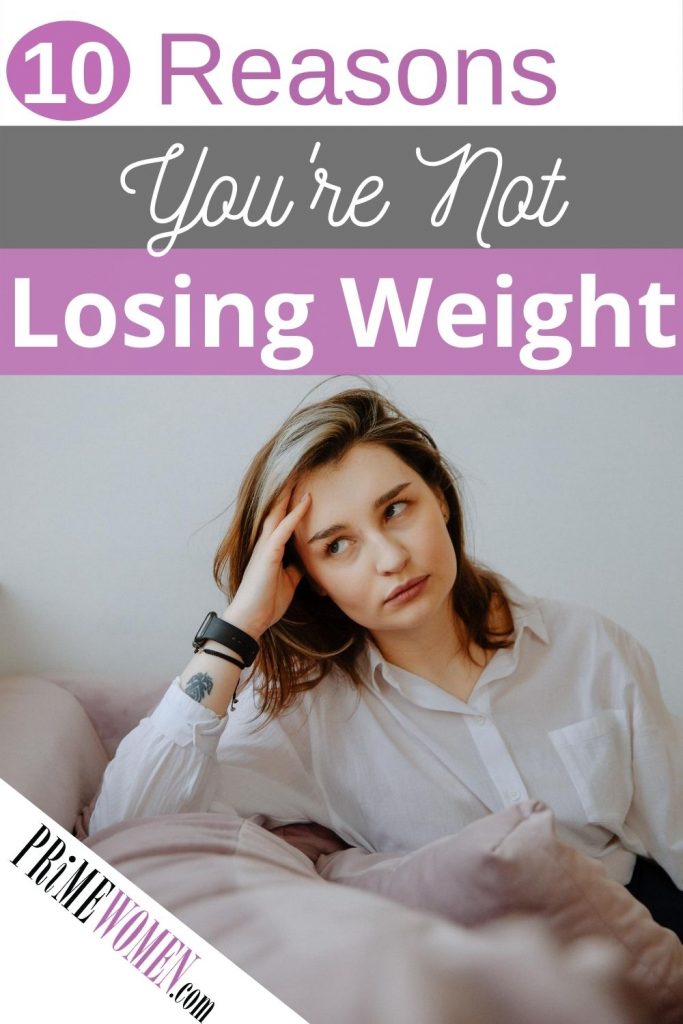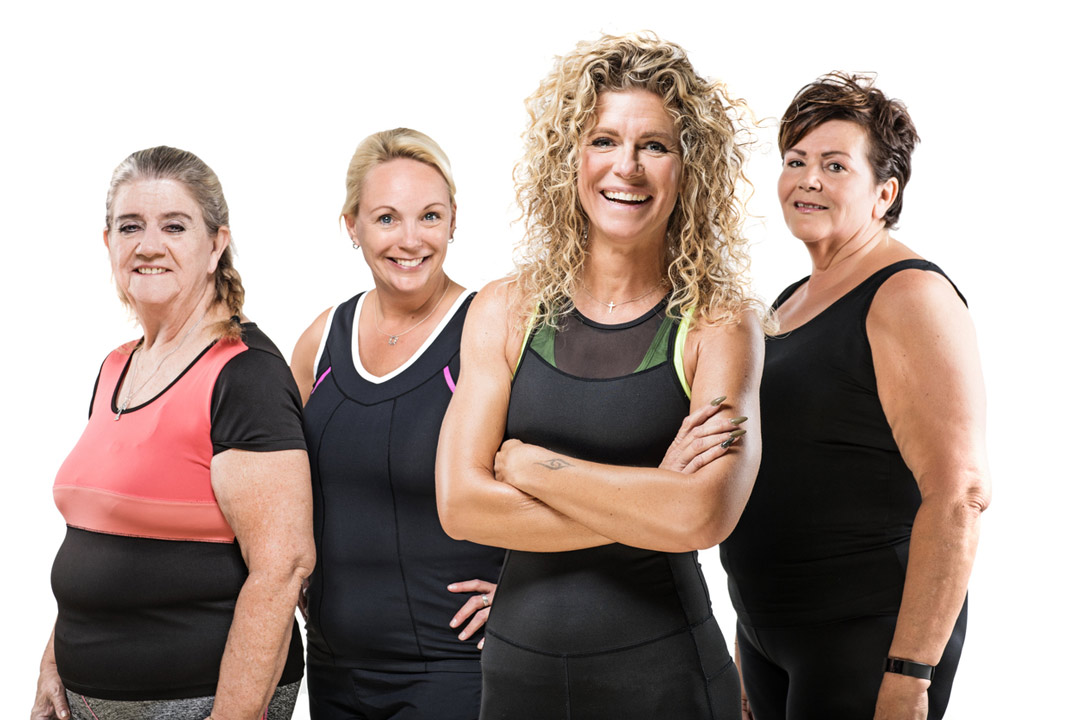Reasons you’re not losing weight even when you’re eating healthy and exercising vary from woman to woman. In midlife though, there are some commonalities. Explore these if you can’t get that needle on the scale to budge, despite your best efforts.
10 Reasons You’re Not Losing Weight
#1 Hidden Food Sensitivities
A food allergy is obvious, whereas a food intolerance is mysterious. Intolerances are the result of the body’s inability to digest or absorb a food completely. It happens later in life, and often can happen when hormone changes occur that also affect the gut. That is, once perimenopause begins its a perfect storm.
If you’ve tried core work and cardio and strength training and still can’t get rid of the pregnant belly, you may need to redefine “healthy food.”
>Read Big, Heavy, Ugly Weights: Are They Right for Women Over 50?
Gas, bloating, and diarrhea, fatigue and inability to lose weight are all just clues. They can be related to reduced production of enzymes needed to break down food that occurs with age.
- Eating yogurt, cheese and cottage cheese? You may be lactase deficient and unable to breakdown lactose.
- Eating lots of beans, bran, fruit or sugar alcohols? You may lack the enzymes to break down the volume of carbohydrates. Vegetarians or vegans are most susceptible.
- Histamines in foods – healthy foods you may be eating on purpose – could actually be causing you problems. Spinach, tomatoes, and fermented foods contain foods that breakdown into histamines.
- Gluten sensitivity – a lot of women who never test positive for Celiac disease (true allergy) experience fewer gut issues and fatigue when they remove gluten or significantly reduce it. The same goes for wheat.

Reduce your exposure to trigger foods. Support your system with enzymes. Foods you eat every day are the ones you’re most likely to become sensitive to and you’ll find specific foods are greater triggers than others.
>LEARN MORE ABOUT PLATE: WEIGHT MANAGEMENT SPECIFICALLY FOR WOMEN OVER 50
#2 Nutrient Deficiency
It’s been said many times, the U.S. is the most overfed and undernourished country in the world. If you’re a woman used to cutting back and eating iceberg (or spinach for that matter) far too often you may be missing micronutrients you need.
It’s nearly impossible to eat a balanced diet that contains even the RDAs, which doctors and RDs alike now recognize as too low for anyone to thrive in 2019. Take a good look at your diet and the diversity of the foods you eat. Consider supplementing with an intelligent high-quality multivitamin at the least. (A one-a-day vitamin is probably not your best choice today).
The best way to know what your body needs is a micronutrient test. Then you’re not blindly supplementing. Today you can use your insurance through your doctor or order your own direct lab. Results tell you exactly what effect your diet and supplements are having on you.
#3 Lack of Sleep
Hormones are directly related to your ability to store or burn fat and to counter that with gaining or at the least maintaining lean muscle. You nurture those specific hormones when you sleep.
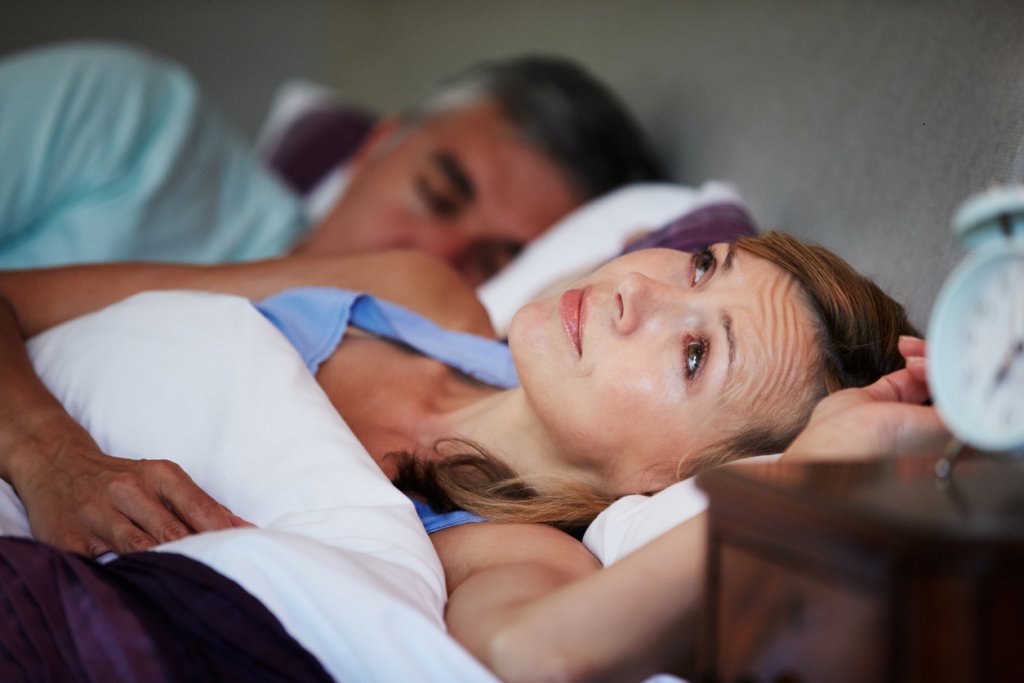
Of all the reasons you’re not losing weight, sleep is the most passive to fix. The number one thing you can do to improve weight loss results without changing anything else is get the right quantity and quality of sleep for you.
Instead of choosing an arbitrary quota, test your sleep needs. Go to bed when you’re tired. Keep the bedroom cool, dark, and quiet, and wake naturally. Conduct that experiment 3-5 times and compare the hours you slept to what you regularly get. Close that gap.
No amount of dieting or exercise will benefit your muscles or metabolism without sleep.
#4 Exercise of the Wrong Type or at the Wrong Time
Strength training should be your highest priority after 40 something. The younger a woman gets comfortable weight training the less likely she’ll associate menopause with weight gain.
Muscle is the organ of longevity and it is paramount to metabolism. Cardiovascular exercise and mobility activities simply do not have the same effect on your body’s ability to expend energy. Aging will naturally result in a loss of muscle if you’re not doing resistance training to stop it.
Long-term changes in body composition occur thanks to strength training exercise for major muscles just twice a week. The exercise has to be of adequate stimulus. That is, it must cause muscular fatigue. Heavy weight training shows the greatest success in supporting weight loss (fat loss specifically).
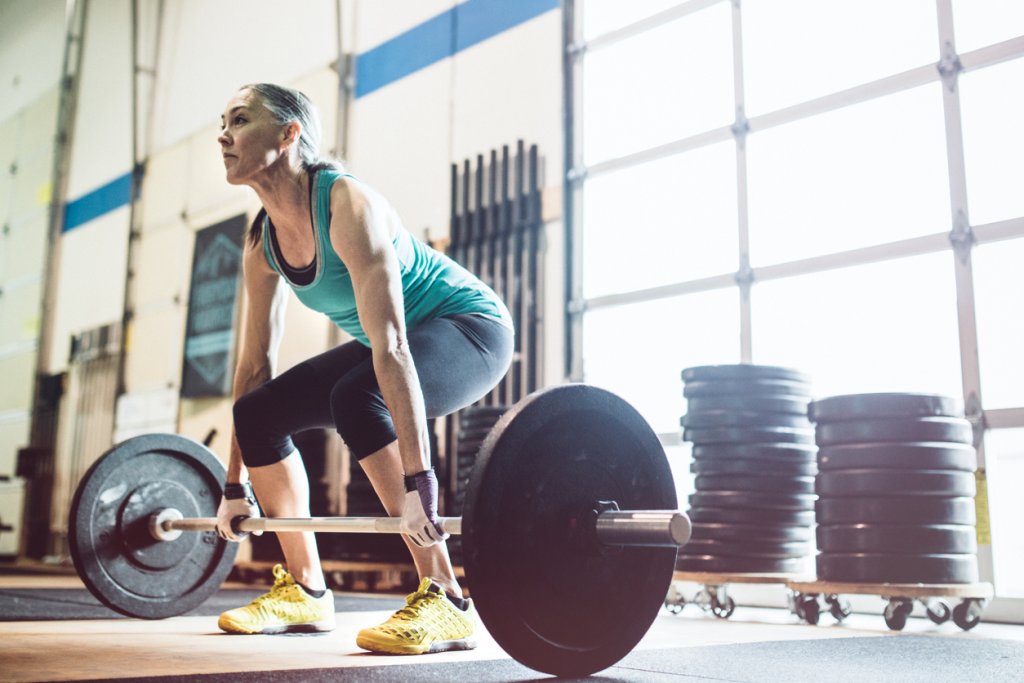
If you can’t tolerate heavy weights, or are just starting out, even lighter weight training should take you to muscular fatigue to optimally change the muscle.
Of course, you need cardiovascular exercise. You just need less of it than you’ve been led to believe.
If you’re not losing weight, you want to do high-intensity exercise (whether interval training or weight training) early in the day and low intensity exercise late in the day to work with your hormones.
>READ 6 WAYS STRENGTH TRAINING REVERSES AGING AND BEATS CARDIO
#5 Lack of Rest & Recovery
Most women erroneously exercise more and eat less to lose weight. That’s like one foot on the accelerator and one foot on the brake. Your body does no better than a car would in that situation. The biggest problem with increasing exercise is that you fail to increase the amount of rest between sessions.
After 40, the need for recovery increases. Your capacity to exercise at high intensity does not change (in fact it is required for optimal hormone balancing exercise) with age. However, without adequate recovery you are breaking down muscle twice as fast as you’re repairing it.
All exercise is a catabolic experience. There’s micro damage to muscle. If repair isn’t allowed at the cellular level between sessions your metabolism can’t benefit from exercise.

Exercise creates the opportunity for fitness. Rest & recovery that includes light movement, sleep, adequate calories and protein creates fitness. Increase your fitness and you’ll increase your metabolism.
For one of my 60-year-old clients, increasing rest and recovery resulted in a weight loss of 75 pounds after multiple years of a weight loss plateau.
The Hormonal Reasons You’re Not Losing Weight
Each of the aforementioned reasons you’re not losing weight contributes to one or more of the following underlying hormonal reasons you’re not losing weight.
>READ HOW YOUR HORMONES AFFECT YOUR FIGURE
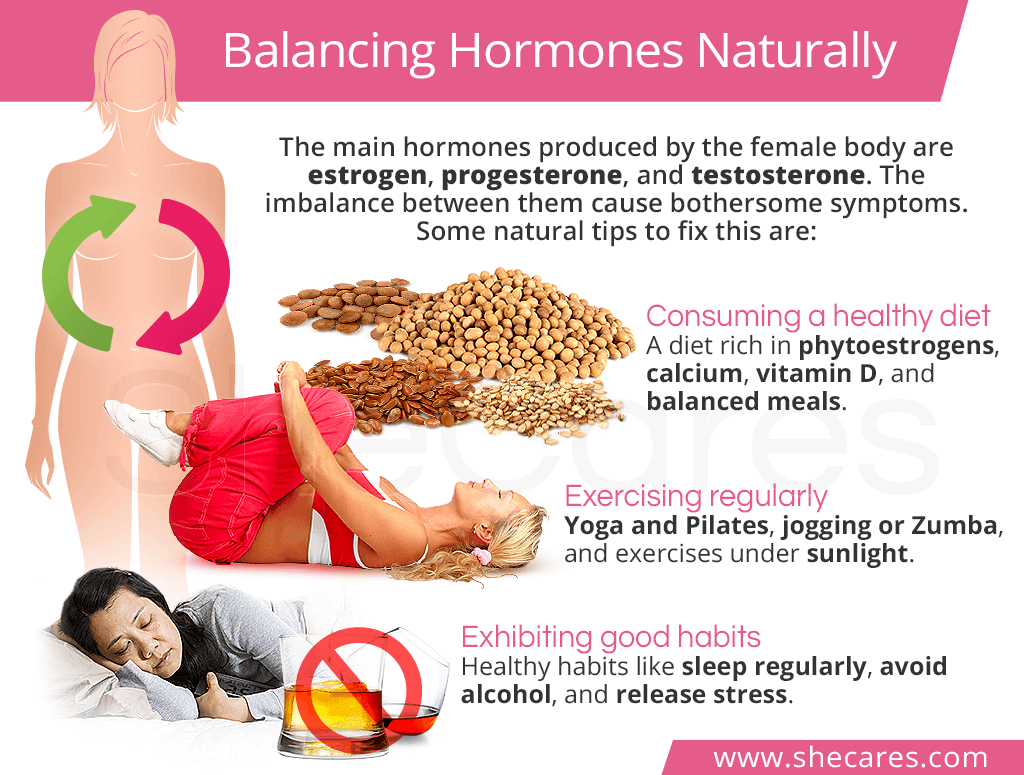
#6 Cortisol Imbalance
If cortisol is too high when it should be low or low when it should be high you are probably storing belly fat like a squirrel in the fall. Adequate sleep is your first line of defense. If your body is stressed it will hold onto every calorie for that rainy day.
>READ RELIEVE STRESS: PRACTICE MINDFUL YOGA WALKING
#7 Low DHEA levels
DHEA production levels decline with age. That’s a problem because DHEA is a precursor to the balance of estrogen, progesterone, and testosterone. You don’t hear much about DHEA, partially because those sex hormones are stealing the show. Low levels of it can also be confused with cortisol imbalance: you may get sick more often, be unable to sleep, or feel tired much of the time.
#8 Estrogen Dominance
Even low, it’s high. Estrogen levels do of course drop as you enter perimenopause. But if you’re under a great deal of stress, or self-imposing it with loads of exercise and dieting, cortisol is blocking progesterone. That’s a problem if you want to feel calm and relaxed. Progesterone and estrogen should balance each other. So if progesterone is blocked, estrogen is high. Belly fat is usually the result.
>READ PROGESTERONE: THE FEMALE WONDER HORMONE?!
#9 Low Testosterone
Testosterone is your alpha-girl hormone. Boardroom to bedroom, it gives you confidence. It also supports lean muscle and makes those workouts you’re doing more beneficial. Without it you lack muscle tone, energy, and libido. (You’re not alone: 80% of women in menopause report low libido. It doesn’t have to be just because it’s “normal.”)
>READ HOT FLASHES AREN’T THE ONLY HEAT: FIRE UP YOUR LIBIDO
#10 Decreasing Growth Hormone
Growth Hormone (GH) is another hormone oh-so important for your lean muscle maintenance. GH production declines with age, too. Sleep is a must for more GH. If you’re on a “win-back” campaign for muscle, boost GH naturally by doing 10-minute interval training sessions 1 or 2 times a week (plus a warm up and cool down), and by lifting heavy weights. Then recover by spending plenty of time in deep sleep, when GH is produced.
>READ ARE YOU SLEEP DEPRIVED? THE STRUGGLE IS REAL
Ultimately, your body doesn’t want to carry extra weight. Habit changes you make can positively influence hormones. You have the ability to turn it around at any age.
Check out Debra’s Youtube video Real Reasons Why You Can’t Lose Weight After 50
Resources:
Pietzak, M. Celiac disease, wheat allergy, and gluten sensitivity: when gluten free is not a fad. JPEN. J. Parenter. Enteral Nutr. 36, 68S–75S (2012).
Catassi, C. et al. Non-Celiac Gluten Sensitivity: The New Frontier of Gluten Related Disorders. Nutrients 5, 3839–3853 (2013).
You Still Got It, Girl! The After 50 Fitness Formula for Women, Atkinson, D.
